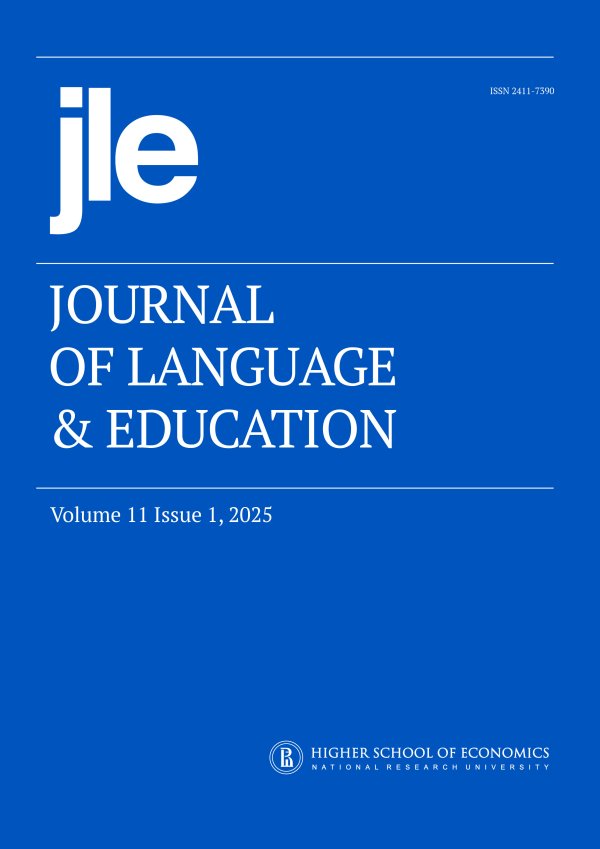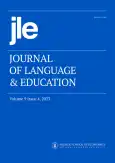Academic Integrity: Author-Related and Journal-Related Issues
- Авторы: Raitskaya L.1, Tikhonova E.2,3
-
Учреждения:
- MGIMO University, Moscow, Russian Federation
- HSE University, Moscow, Russian Federation
- Peoples’ Friendship University of Russia (RUDN University), Moscow, Russian Federation
- Выпуск: Том 9, № 4 (2023)
- Страницы: 5-10
- Раздел: От редактора
- URL: https://journal-vniispk.ru/2411-7390/article/view/302288
- DOI: https://doi.org/10.17323/jle.2023.18489
- ID: 302288
Цитировать
Полный текст
Аннотация
Introduction: Author-related and journal-related metrics have long been the target for manipulations on part of some researchers, journals, and occasionally countries, eager to rank higher or get other benefits. Games played with metrics are abundant and may be triggered by rigid “publish-or-perish” national or university policies and consequent pursuit for benefits. In addition, new technologies make headway to unprecedented schemes in research production and promotion. The JLE Editors aim to inform JLE readers of their stance on the current revision of the JLE ethical guidelines for authors, editors, and reviewers in response to the new challenges.
Basic Concepts Related to Academic Integrity: The key concepts related to academic integrity are commented on, including some particulars about academic integrity, plagiarism, academic misconduct, fabrication and falsification of data, peer review manipulations, citation manipulations, and predatory journals.
Revisions in the JLE Editorial Policy on Authorship: With the ChatGPT entering the realm of science, the technology caused a heated debate over the ethical aspects of Artificial Intellect (AI) generated submissions to scholarly journals. The JLE editors share a rather popular stance that submissions cannot be subject to ChatGPT generation or revision.
Conclusion: The JLE has been revising its ethical guidelines as of authorship, including the limits for ChatGPT uses in submissions. The JLE editors apprise all stakeholders of the revised guidelines that cover the use of generative pre-trained transformers in submission generation.
Об авторах
L. Raitskaya
MGIMO University, Moscow, Russian Federation
Автор, ответственный за переписку.
Email: raitskaya.l.k@inno.mgimo.ru
E. Tikhonova
HSE University, Moscow, Russian Federation; Peoples’ Friendship University of Russia (RUDN University), Moscow, Russian Federation
Email: jle.hse.journal@gmail.com
Список литературы
- Abad-García, M. (2019). Plagiarism and predatory journals: A threat to scientific integrity. Anales de Pediatría (English Edition), 90(1), 57.e1-57.e8. DOI: https://doi.org/10.1016/j.anpedi.2018.11.003
- AlRyalat, S.A., Azzam, M.I., Massad, A., & Alqatawneh, D.A. (2020). Retractions of research papers by authors from the Arab region (1998-2018). European Science Editing, 46. DOI: https://doi.org/10.3897/ese.2020.e51002
- Fister, I., Jr., Fister, I., & Perc, M. (2016). Toward the discovery of citation cartels in citation networks. Frontiers in Physics, 4, 49. DOI: https://doi.org/10.3389/fphy.2016.00049
- Illia, L., Colleoni, E., & Zyglidopoulos, S. (2023). Ethical implications of text generation in the age of artificial intelligence.
- Business Ethics, Environment and Responsibility, 32(1), 201-210. DOI: https://doi.org/10.1111/beer.12479
- Gureyev, V.N., & Mazov, N.A. (2022). Bibliometrics as a promising tool for solving publication ethics issues. Heliyon, 8(3), e09123. DOI: https://doi.org/10.1016/j.heliyon.2022.e09123
- Ho, W.L.J., Koussayer, B. & Sujka, J. (2023). ChatGPT: Friend or foe in medical writing? An example of how ChatGPT can beutilized in writing case reports. Surgery in Practice and Science, 14, 100185. DOI: https://doi.org/10.1016/j.sipas.2023.100185
- Lambovska, M., & Todorova, D. (2023). Striving for high-quality publications: Motivational profiles of management within a Bulgarian university cluster. TEM Journal, 12(2), 1100-1109. DOI: https://doi.org/10.18421/TEM122-56
- Lancaster, T. (2021). Academic dishonesty or academic integrity? Using Natural Language Processing (NLP) techniques to investigate positive integrity in academic integrity research. Journal of Academic Ethics, 19, 363 - 383. DOI: https://doi.org/10.1007/s10805-021-09422-4
- Larson, J. (2018). Other voices: authors' literary-academic presence and publication in the discursive world system. Discourse: Studies in the Cultural Politics of Education, 39(4), 521-535. DOI: https://doi.org/10.1080/01596306.2016.1278357
- Leducq, S., Bonsu, N., Clement, K., Barlow, R., & Williams, H.R. (2023). Predator and alien: The threat of predatory journals and conferences. Clinical and Experimental Dermatology, 48(2), 847-853. DOI: https://doi.org/10.1093/ced/llad133
- Macfarlane, B., Zhang, J., & Pun, A. (2014). Academic integrity: A review of the literature. Studies in Higher Education, 39(2), 339-358. DOI: https://doi.org/10.1080/03075079.2012.709495
- Marar, S., Hamza, M.A., Ayyash, M., & Abu-Shaheen, A. (2023). Development and validation of an instrument to assess the knowledge and perceptions of predatory journals. Heliyon, 9(11), e22270. DOI: https://doi.org/10.1016/j.heliyon.2023.e22270
- Mitchell, T., & Carroll, J. (2008). Academic and research misconduct in the PhD: Issues for students and supervisors. Nurse Education Today, 28(2), 218-26. DOI: https://doi.org/10.1016/j.nedt.2007.04.003
- Moylan EC, Kowalczuk MK. (2016). Why articles are retracted: a retrospective cross-sectional study of retraction notices at BioMed Central. BMJ Open, 6, e012047. DOI: https://doi.org/10.1136/bmjopen-2016-012047
- Okaibedi, D. (2023). ChatGPT and the rise of generative AI: Threat to academic integrity? Journal of Responsible Technology.
- Perc M. (2014). The Matthew effect in empirical data. Journal of Royal Society Interface, 11, 20140378. DOI: https://doi.org/10.1098/rsif.2014.0378
- Teixeira da Silva, J.A. (2021). Citations and gamed metrics: Academic integrity Lost. Academic Questions, 34. DOI: https://doi.org/10.51845/34s.1.18
- Teixeira da Silva, J.A. (2017). The ethics of peer and editorial requests for self-citation of their work and journal. Medical Journal, Armed Forces India, 73, 181-183. DOI: https://doi.org/10.1016/j.mjafi.2016.11.008
- Teixeira da Silva, J.A. (2013). The need for post-publication peer review in plant science publishing. Frontiers in Plant Science, 4, 485. DOI: https://doi.org/10.3389/fpls.2013.00485
- Tang, G. (2023). Academic journals cannot simply require authors to declare that they used ChatGPT. Irish Journal of Medical Science (1971 -). DOI: https://doi.org/10.1007/s11845-023-03374-x
- Ternes, M., Babin, C., Woodworth, A., & Stephens, S. (2019). Academic misconduct: An examination of its association with the dark triad and antisocial behavior. Personality and Individual Differences, 138, 75-78. DOI: https://doi.org/10.1016/j.paid.2018.09.031
- Tikhonova E., & Raitskaya L. (2023). ChatGPT: Where is a silver lining? Exploring the realm of GPT and large language models. Journal of Language and Education, 9(3), 5-11. DOI: https://doi.org/10.17323/jle.2023.18119
- Tollefson, J. (2023). The plan to Trump-proof US science against meddling. Nature, 613(7945), 621-622. http://. DOI: https://doi.org/10.1038/d41586-022-03307-1
- Yan, J.R., MacDonald, A., Baisi, L.P., Evaniew, N., Bhandari, M., & Ghert, M. (2016). Retractions in orthopaedic research. Bone & Joint Research, 5, 263 - 268. DOI: https://doi.org/10.1302/2046-3758.56.BJR-2016-0047
Дополнительные файлы











